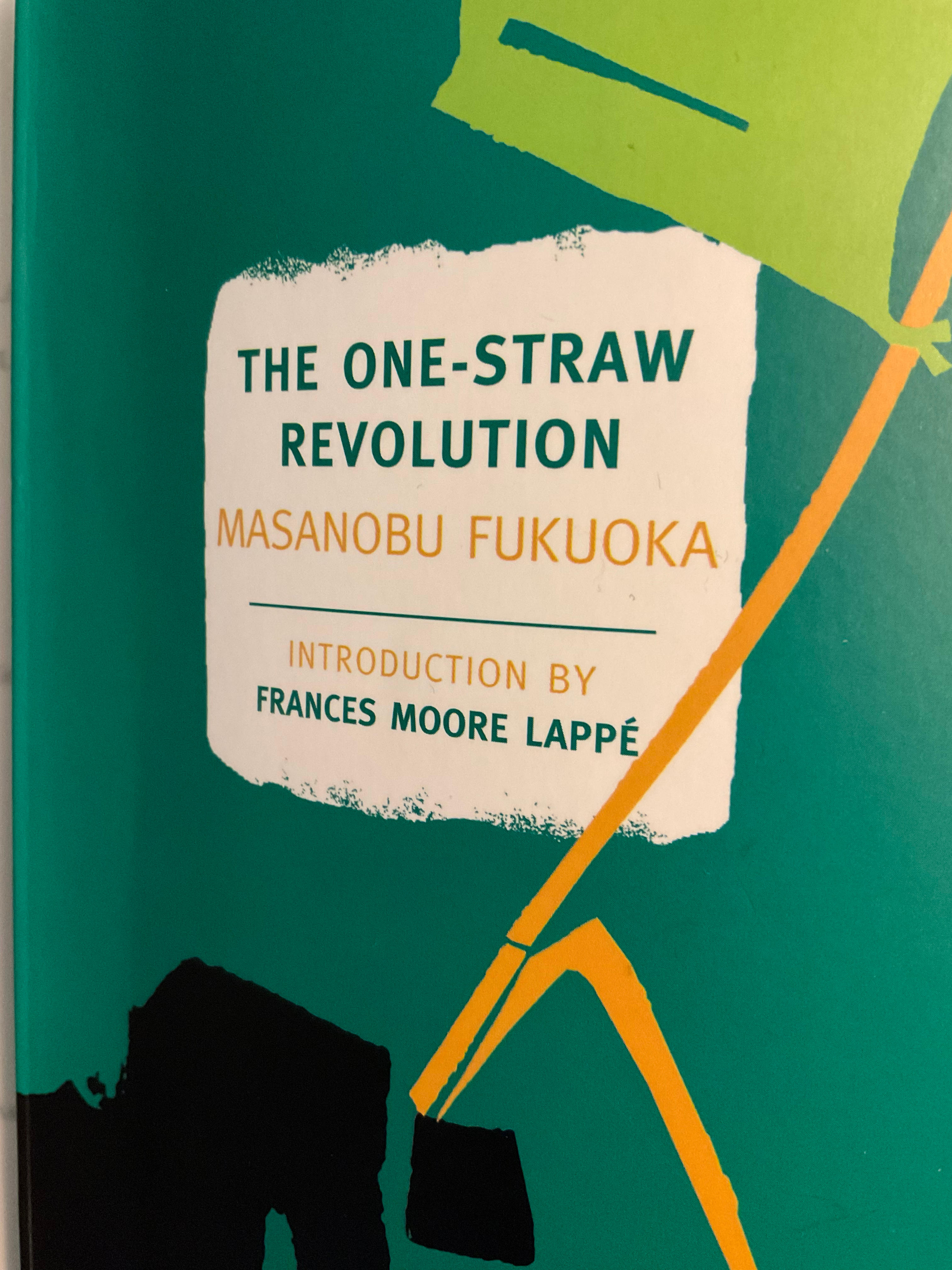
December 22, 2024
Dream10X Episode 71: The One-Straw Revolution
Blessed are the meek: for they shall inherit the earth.King James Bible, Matthew 5:5
Description
This is a book by Masanobu Fukuoka, Copyright 1978. Mr. Fukuoka’s farm is on the southern Japanese Island of Shikoku overlooking Matsuyama Bay. He started farming here in his mid twenties after what appeared to me to be a nervous breakdown from working too hard and getting sick.
The Japanese are one of the hardest working people on earth. Ironically, after his breakdown, Fukuoka declares that:
Humanity knows nothing at all. There is no intrinsic value in anything, and every action is a futile, meaningless effort.pg. 4
The statements he makes in his book sound somewhere between absolute Nihilism and Shoshin (beginner’s mind).
At its root, this is a book more about a philosophy of life and living in harmony with nature and less a book about farming. In some ways, though, the path to living a more harmonious life seems like it could begin with striving to sustain one’s self through the sustainable farming techniques he describes in this book.
In the last episode in the review of Gary Paul Nabhan’s book, ‘Enduring Seeds’, we touched on the concept of the agrarian life being perhaps the penultimate life for mankind and that perhaps modern culture and society is leading us far afield of that state.
Mankind has evolved from hunter gatherers, to a less mobile agrarian lifestyle, to the industrial revolution that pulled farmers into factories, to the current sedentary knowledge worker, in large part.
Modern man now has very little personal time, high stress commutes, sedentary jobs centered around computers, personal stresses of servicing mortgages, educations and other bills, all with little to no hope of a leisurely ‘retirement’.
Mr. Fokuoka’s book helps to underscore this somewhat sad state of modern affairs and offers ideas for building back an alternative, highly decentralized, self-sustaining, leisurely agrarian society.
Five Key Takeaways
One
His Four Principles of natural farming:
- No Cultivation - no plowing or turning of the soil. He contends that this leads to eternally usable fields as no depletion of resources and minerals occur when not plowed.
- No Chemical Fertilizers Or Compost - Fertilizers and composting are only needed when you plow the soil and disturb its natural wealth.
- No Weeding By Tillage Or Herbicides - Weeds are important to the soil fertility and in balancing the biological community. The trick in controlling weeds is in the use of straw mulch and white clover.
- No Dependence On Chemicals - Chemicals are harmful, full stop; the natural balance of plants prevents insects from eating all the desirable plants making the use of chemicals a dumb idea.
Two
Importance of living in nature and striving to be our natural selves. Formal education serves an alternate purpose to living a natural life:
“In nature, formal schooling has no function.”
Formal education is only necessary in so far as one removes themselves from the natural life. For example, learning about computing and modern technology, which has no value when living in our natural environment.
I think alot about the ‘promises’ of modern technology and whether it is really delivering, especially when you look around and see how polluted the cities and the world as a whole have become as a direct result. Computing technology alone is really dirty when it comes to disposing of old equipment, phones, cables, etc. in favor of the latest computing innovations.
Plastic, as another modern technological example, is a total fail for our ecosystems as plastic and microplastics start to be found in literally everything, everywhere.
Three
Thinking like a lazy farmer is most beneficial. Use straw mulch and white clover to keep weeds at bay. If the clover sprouts before the weeds, the hardy white clover will help to prevent the weeds from taking over. Sow your crop seed right on the ground (under the straw) rather than till the soil. No modern machinery needed when a simply scythe will do.
Four
After WWII, in Japan, between 70-80% of the population were farmers. That number quickly dwindled to around 14%. Japan seeks to be like Europe and the US where these Governments tend to discourage more than 10% of the population from farming.
Is that true?!?! Why?!?!
Ideally, everyone would be a self-sufficient farmer, living solely off the food they produce for themselves. In Japan, Fukuoka states that if every family of five had 1 and 1/4 acres of land, they could grow enough food to feed the whole family sustainably.
If natural farming were practiced, a farmer would also have plenty of time for leisure and social activities within the village community.pg. 109
This is an idea (more lesisure time) that modern technology has failed to deliver on for the modern knowledge worker.
Five
Live a life less ordinary, live a life extraordinary with me!Carbon Leaf
But how?
Part of our complicated life problem, according to Fokuoku, is our extravagant desires. We always want more of a thing - bigger house, nicer car, faster computer, newest phone. These material things drag us away from our natural selves and thus a simpler life.
Opposing this sentiment is not at all how a capitalist world would have us think. More and bigger is always better, according to modern society.
But what if it’s not better…for us?
Fast rather than slow, more rather than less - this flashy “development” is linked directly to society’s impending collapse.pg. 110
According to Fukuoka, natural farming for survival and the freedom of the soul is the way forward. When man starts to farm for profit is the moment the natural harmony between man and nature gets thrown out of balance.
The ultimate goal of farming is not the growing of crops, but the cultivation and perfection of human beings.pg. 119
Our Sponsors
Links
James Caple
BLOG
podcast learning hacking software technology fitness spirituality mentalfortitude startup
